The Outbound International Mobility Program to Universitas Malang, Indonesia
Outbound mobility programs play a crucial role in the development of universities by providing students and faculty with opportunities to engage in cross-cultural learning, academic collaboration, and professional networking. These programs expose participants to diverse educational systems, research methodologies, and cultural practices, fostering global perspectives that enhance both academic and professional competencies. By immersing students in international environments, outbound programs cultivate adaptability, intercultural communication, and problem-solving skills, which are essential for success in an increasingly interconnected world. Additionally, they strengthen institutional partnerships and contribute to knowledge exchange, promoting innovative teaching and research approaches.
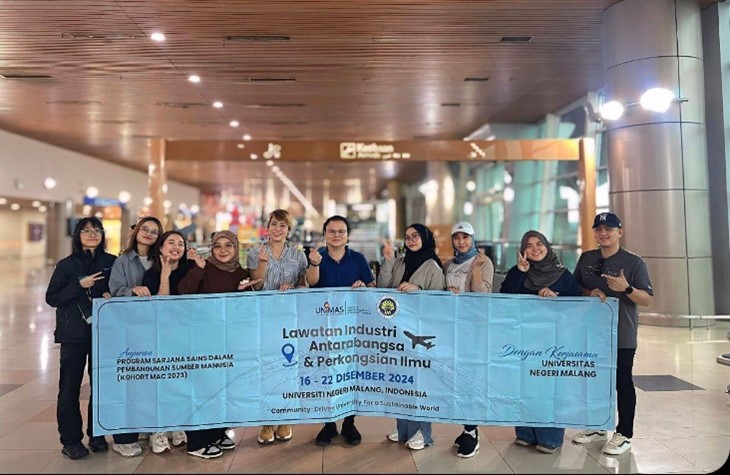
The Outbound International Mobility Program to Universitas Malang, Indonesia, was designed to facilitate cultural exchange, academic collaboration, language learning, and research while fostering international connections and enhancing both personal and professional development. It is organized by the Master of Science in Human Resource Development (March 2023 Cohort) in collaboration with Universitas Kota Malang. The program provided an immersive experience for nine students from Cohort 38, guided by Dr. Mark Kasa, allowing them to gain deeper insights into Indonesia’s academic and cultural environment.
The objectives of the program were realized through various activities that facilitated cultural exchange, academic collaboration, language learning, and research. Participants visited the Language Faculty and Language Laboratory at Universitas Malang, where they engaged with faculty members and explored innovative language programs. This visit reinforced the program’s goal of academic collaboration by exposing students to diverse linguistic methodologies and fostering discussions on language education. The tour of the German, Chinese, Japanese, and English Language Cube Rooms provided further exposure to interactive learning tools, enriching their understanding of language acquisition and pedagogical approaches. Additionally, the visit to a university-supervised school allowed participants to observe classroom dynamics, interact with educators, and gain practical insights into instructional methods. The Sports Day at SDN 1 Malang further strengthened cross-cultural exchange by promoting teamwork and community engagement through various physical activities.
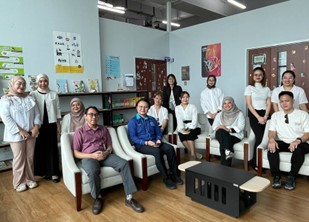
Research development was a key component of the program, aligning with the objective of enhancing academic collaboration. Participants attended specialized sessions on research methodology, including Academic Writing in Scholarly Community and Qualitative Research Methodology. These sessions provided valuable insights, constructive feedback, and expert guidance to refine research proposals, strengthening their academic competencies. Additionally, participants recorded a podcast to document and share their reflections on the journey, emphasizing the personal and professional growth achieved through the program. Cultural immersion was further enhanced through the enjoyment of traditional Nasi Padang cuisine and leisurely campus exploration, fostering a deeper appreciation for Indonesian customs and lifestyle.
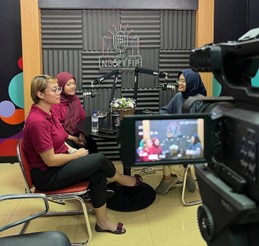
Exploring Indonesia’s historical and entrepreneurial landscape contributed to both cultural exchange and research-oriented learning. The visit to Candi Singosari, an ancient Hindu-Buddhist temple, provided historical context to Indonesia’s rich heritage, deepening participants’ cultural awareness. Later, the visit to Rumah BUMN, a center supporting local entrepreneurs, aligned with the program’s focus on research and international networking. Engaging with small business owners allowed participants to gain insights into sustainable economic practices, innovation, and community-driven development. The excursion to Batik Benang Raja highlighted Indonesia’s traditional textile craftsmanship, reinforcing the cultural exchange component of the program. Participants also learned about employee training strategies, gaining valuable knowledge applicable to human resource development.
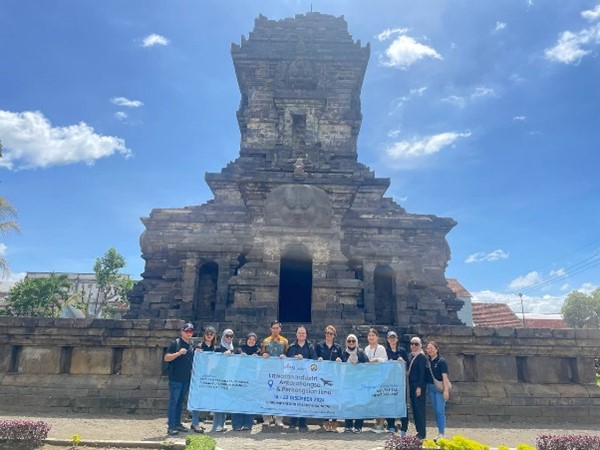
Javanese heritage and traditional music played a significant role in the cultural exchange aspect of the program. A session on Javanese Kingdoms provided historical insights into the evolution of Southeast Asian civilizations, enhancing participants’ understanding of cultural identity and governance. The hands-on Gamelan Workshop offered an interactive learning experience in traditional Javanese music. By playing instruments such as the gamelan, rebab, suling, and kendang, participants developed an appreciation for Indonesia’s artistic traditions and communal values. This session contributed to a deeper understanding of the region’s cultural legacy while fostering teamwork and creativity.
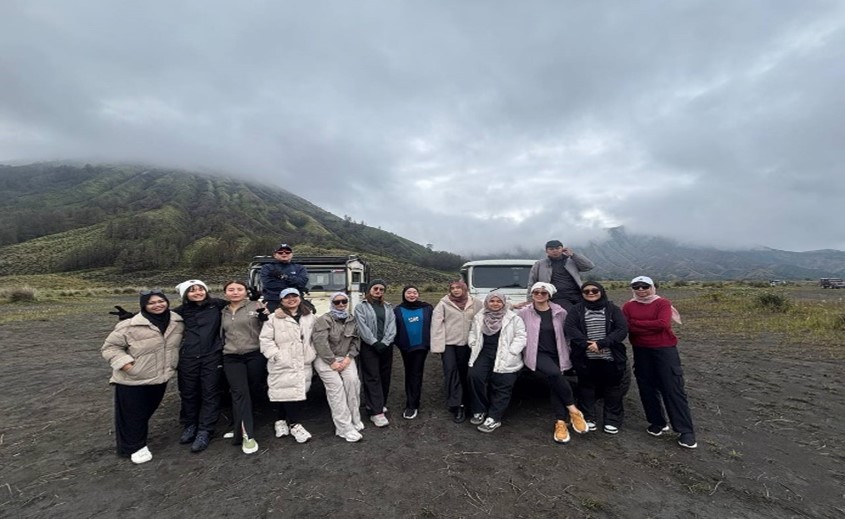
The program culminated in an adventurous exploration of Mount Bromo, reinforcing teamwork, resilience, and international camaraderie. The midnight journey, guided by Universitas Malang volunteers, provided an awe-inspiring experience that blended natural exploration with cultural significance. The breathtaking sunrise at the summit and visits to Teletubbies Hills showcased Indonesia’s geographical wonders, fostering an appreciation for environmental conservation. Participants also learned about the Edelweiss flower, a symbol of resilience and beauty in local culture, further deepening their cultural immersion. This final experience encapsulated the essence of the program—blending academic learning, cultural appreciation, and personal development into an unforgettable journey.
A heartfelt thank you is extended to the Universitas Malang volunteers for their hospitality and unwavering support. Through a combination of structured academic engagements, cultural explorations, and interactive learning experiences, the Outbound International Mobility Program successfully facilitated cross-border collaboration, enriched academic understanding, and fostered global connections, leaving a lasting impact on all participants.
Contributed by Dr. Mark Kasa and MSc HRD Cohort 38